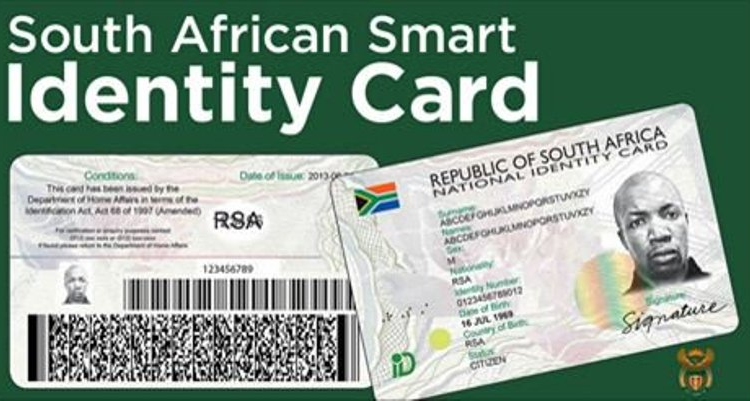South Africa’s Home Affairs has begun allowing naturalized citizens to apply for smart ID cards.
However, this process requires an invitation from the department’s director-general,
For the past eleven years, the country’s smart ID card system has been exclusively available to citizens by birth.
Consequently, naturalised citizens who lost, had stolen, or damaged their green ID books had to visit one of the few offices that still issued the older documents.
Additionally, these individuals and permanent residents were unable to use the Home Affairs online booking system, eHomeAffairs, to apply for passports.
This restriction persisted despite former Home Affairs minister Naledi Pandor’s 2013 announcement that all South African citizens and permanent residents would need to apply for new identity cards.
The shift towards smart ID card availability for naturalised citizens began under the previous minister, Aaron Motsoaledi.
In 2023, the Democratic Alliance (DA) filed a complaint with the Public Protector, highlighting that naturalised citizens were still barred from obtaining smart ID cards a decade after their introduction.
This complaint followed director-general Livhuwani Tommy Makhode’s statement that system modifications were underway to support naturalised citizens’ applications. Makhode acknowledged that the DA had repeatedly raised the issue.
In March 2024, Home Affairs announced in a parliamentary response that it had launched a pilot programme in December 2023 to issue smart ID cards to naturalised citizens.
This announcement came after President Cyril Ramaphosa appointed DA’s Leon Schreiber as Minister of Home Affairs as part of his government of national unity.
Schreiber recently delivered promising news for naturalised citizens, stating that support for smart ID cards was gradually being extended, with 280 cards already issued and another 697 in progress.
“Once the system has been adjusted to verify compliant applications, all naturalised citizens will be able to visit any Home Affairs office equipped with live-capture facilities to apply for their smart ID cards,” Schreiber said.
Questions remain regarding the necessity for naturalised citizens to seek invitations to apply and the delays in allowing them to obtain smart ID cards. Schreiber has yet to provide comments on these matters.
A major issue with South Africa’s old ID documents has been their widespread use in identity fraud across Africa.
Smile ID’s Digital Identity Fraud 2024 report revealed that 34% of cases involving South African ID books were flagged for fraud during Know-Your-Customer (KYC) checks.
Given the prevalence of ID fraud, the South African government aims to replace the green barcoded ID with a more secure document.
The new smart ID cards feature advanced anti-fraud measures, including a microchip for securely storing biometric information, holograms, laser engraving, and personal details.
To phase out the old ID books, Home Affairs needs to accelerate the rollout of smart ID cards to all citizens and permanent residents.
Deputy Minister Njabulo Nzuza stated during a recent budget vote speech that approximately 26 million South Africans currently hold smart ID cards.
The department produced 2,613,248 smart ID cards in the 2022/23 financial year and 2,822,236 in the 2023/24 financial year.
Nzuza mentioned that the plan is to phase out green ID books once the department reaches 38 million smart ID cards, a target set in 2013 based on the estimated number of green ID books in circulation at that time. At the current production rate of 3 million smart IDs per year, it will take another four years to reach this target.






























































